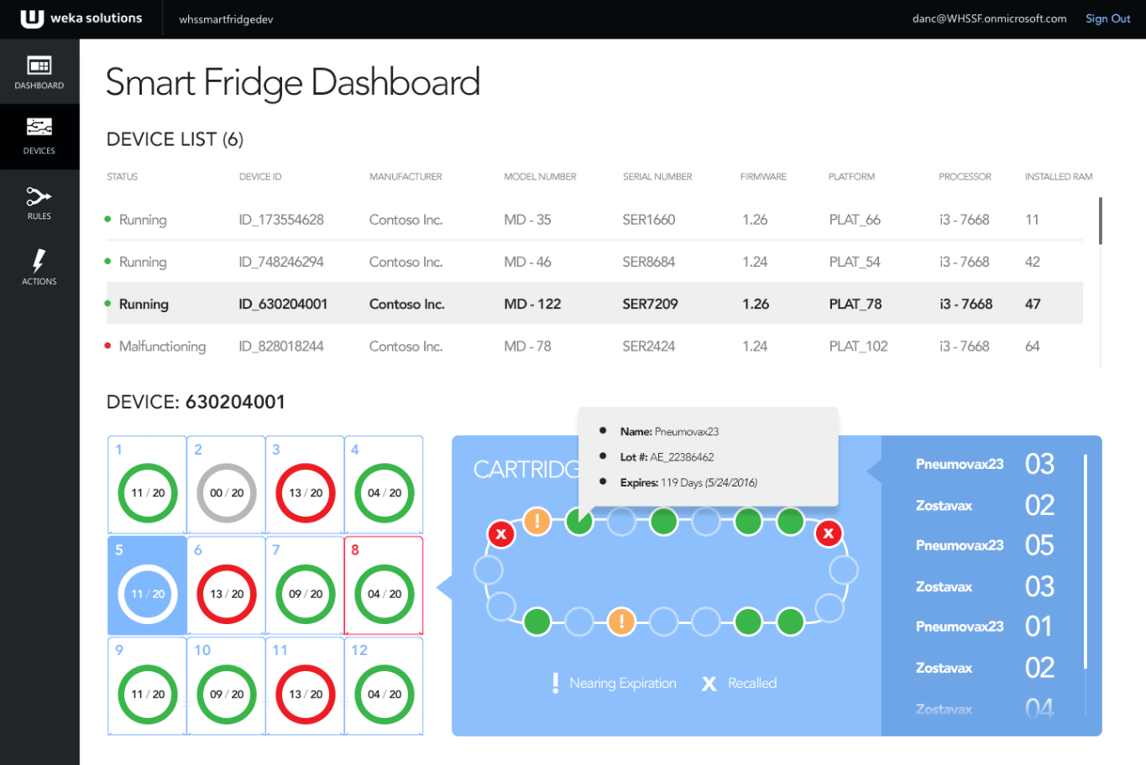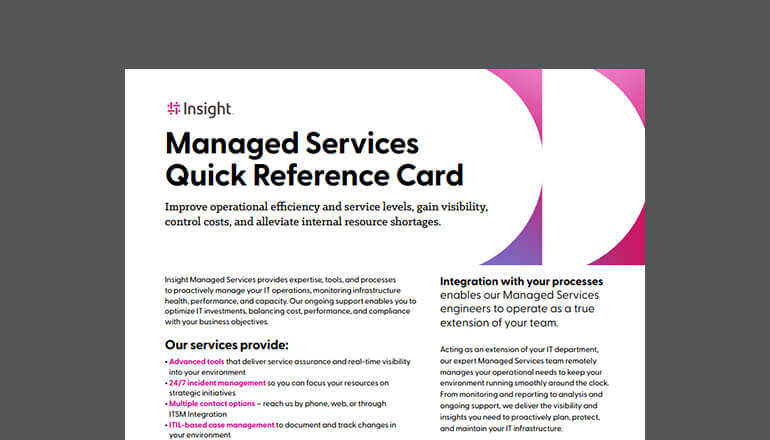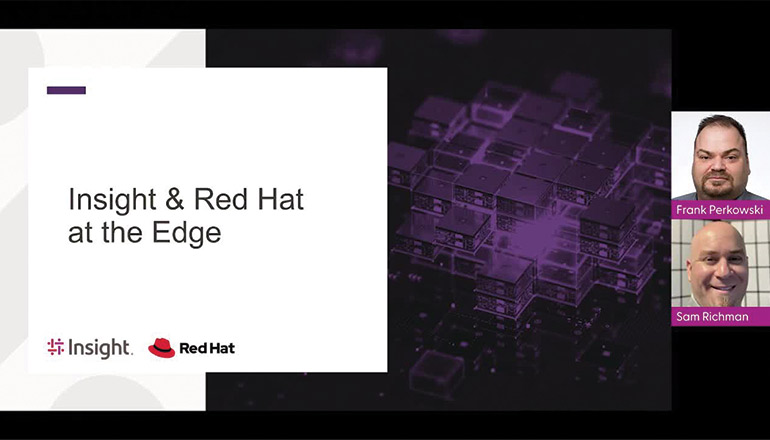Article Top 4 Industries Using the IoT Platform
Pretend you’re a woodworker during the advent of the Industrial Revolution. You’re most likely used to cutting wooden pegs by hand to build products. But machines have ushered in a new era. They’re making nails and screws supremely faster than you. Now, your customers aren’t getting your handmade products fast enough, so they take their business elsewhere. Soon, you become a distant memory in the world of woodwork.
By Insight Editor / 4 Feb 2017 / Topics: Intelligent edge

Your competition is rocking the Industrial Revolution; you’re getting rocked by it.
The Internet of Things (IoT), arguably one of the IT industry’s most promising tech trends, makes the stakes just as high for today's businesses. But we like to think of the IoT as the internet of experiences. Those who are on track to forge ahead understand that technology and people are no longer two disparate concepts — they’re both in a constant, co-influential dance creating the future.
That’s precisely why we’re calling out four businesses in different industries using the IoT platform to deliver their best experiences yet. Here’s who they are, what they did — and how the IoT is helping their business thrive.
Racing: Fast track to innovation
“The Greatest Spectacle in Racing” just got greater.
Don’t be fooled by the Indy 500's seemingly simple 200 laps for 500 miles annual event. A deeper look into the racetrack and the cars themselves reveals an ecosystem of sophisticated sensors and data that are making the event and the sport more relevant than ever.
As the race progresses, IoT sensors on the track and race cars feed real-time data into the cloud, broadcasting it into the hands of thousands of race fans via a mobile app to answer questions such as:
- What was my favorite racer’s average speed?
- How long has the driver been in his or her current standing?
- How does the driver's performance compare to prior races?
- Given current performance, competition and track conditions, what are the chances of victory?
All of this data is delivered seamlessly and immediately to a device in the palm of your hand, enhancing the experience with each riveting lap.
This IoT-powered stroke of genius has enabled new revenue streams for the event, too. With e-commerce capabilities built right into the app, captivated fans can easily purchase jerseys and other race memorabilia to enhance their digital experience. A promising opportunity indeed when you consider the event’s roughly 300,000 annual attendance rate.
Marrying IoT sensors with advanced analytics and gamification, the world-renowned event was able to breathe new life into a 100-year-old tradition, setting a game-changing standard for digital engagement in the world of racing.
Retail: Solving an inventory epidemic
In the retail industry, overstocks and out-of-stock inventory equates to more than a $1 trillion dollar problem based on findings from IHL Group. But it’s one less problem for Levi Strauss and Company, who worked with Intel’s Retail Sensor Platform to help them conquer their inventory — and their competition.
Even though retail stores are feeling the heat to adopt the full online store experience, 94% of retail shopping still occurs in brick and mortar stores, according to analytics company RetailNext.
Levi Strauss and Co. saw an opportunity to marry the IoT with the brick & mortar experience to create a competitive edge.
The platform, which uses Radio-Frequency Identification Tags (RFID), tracks each item across every store within seconds, maps customer paths throughout the store and pushes out alerts when inventory is low or on the wrong shelves.
These insights and more are expected to drastically improve sale conversions due to increased customer engagement and workforce productivity. Happier shoppers will spend less time rummaging through retail clutter to find their favorite pair of 501s — and more time enjoying the overall Levi brand experience. Style associates will be savvier and more proactive than ever, keeping stores spotless and being able to deliver superior and timely customer service.
From racecars to jeans to life-saving vaccines, the IoT will transform industries of all sizes and purposes, solidifying its mark on the world through people-driven innovation.
Healthcare: A smart fridge that saves lives
It’s amazing how a tiny vaccine can prevent life threatening disease on a global scale. But with spoilage, sub-optimal storage and rampant inventory miscalculations (especially in developing countries), Weka Solutions harnessed the power of the IoT platform to help reimagine vaccine management and distribution for clinicians across the world.
Small enough to be transported in a van, the Weka Smart Fridge uses IoT sensors, the cloud and Application Program Interface (API) systems to collect real time data about each batch of vaccines and the fridge itself — monitoring everything from temperature to spoilage, staff access, GPS device location and more.
The result? Fewer financial losses caused by expired vaccines. Increased availability due to the fridge’s capacity to work despite power outages. More effective clinicians that have a full-line of site into their inventory. And most importantly, an enhanced patient experience and more saved lives through timelier, quality care.

Figure 1 shows a snapshot of the analytics dashboard via IoT sensors in a Weka Smart Fridge, indicating vaccine arrangement, type, projected expiration date and more.
Sports: Intelligent athlete management
Hurling is a sport that takes guts. Teams run across fields, using sticks to launch a ball traveling upwards of 100 mph into the opposition’s field goal. The ball is as hard as a baseball, and no one on the field is protected by body armor.
The sport’s level of physical demand (and frankly, good old-fashioned risk) — along with the need to understand athletic performance — inspired an IoT company in Boston to create smart jerseys for hurling coaches.
The sensor-enabled jerseys answer questions that any coach would want to know: “When are my key players exhausted?” or “Who should I take out during this play?” or “Who should replace him/her?” Using 18 different biometric factors, a machine learning model is built on each athlete during the game. Coaches are able to track everything from average, maximum and current heart rate to real-time movement on the field — all accessible via a tablet device.
Sure, this wearable technology could translate to any sport, from football to basketball and beyond. But what about other physically demanding, team-oriented undertakings — including life-or-death situations? Imagine military use of sensor-enabled uniforms that can alert medevac operations moments after a soldier is injured in combat. Real time data could reveal where that soldier is, the location of the injury and its severity, enabling faster intervention. On highly-specialized combat missions, predictive data could suggest which soldiers to send in based on overall health and past performance.
Let’s talk about you: What experiences will you create?
Taking on the IoT platform is no easy feat. Businesses must ask questions like:
- What infrastructure is required to sensor-enable our devices?
- How are we going to process the information from that sensor into a data center or cloud platform?
- How will we manage our smart devices?
- What is going to change about our business as a result of this shift?
Getting answers to these questions requires 1. Rethinking how customers expect to interact with you, 2. Robust evaluation of current processes, 3. Appropriate designing of solutions, and 4. Unique skillsets across the entire IoT stack to pull it all together and execute.
Weka, for example, enrolled Insight's Digital Innovation teams to plan, design and deliver via a real-time business solution. Through road mapping, application design and development and modern data architecture, Insight helped translate a multitude of complex data streams coming from the Microsoft Azure platform — into an application beautiful in form and function.
And through Intel’s Retail Sensor Platform solution, Levi Strauss and Co. leveraged Intel’s IoT platform expertise to foster a collaboration that drove real business results.
Perhaps what makes the IoT most appealing is that it knows no bounds. It doesn’t discriminate against industry. Businesses control what sensors map to what products based on the experiences they want to create, and that’s where the real value lies. From racecars to jeans to life-saving vaccines, the IoT will transform industries of all sizes and purposes, solidifying its mark on the world through people-driven innovation.
So what is your business telling you? As your industry crosses the threshold into this new era, think about ways that the IoT can enhance your products and overall mission.
Hear from proven IoT experts.
Our recent livestream took a deep dive into the layers of the IoT platform; experts from Insight and Intel also expanded on trends, practical application and the Weka and Levi Strauss success stories.
Stream the recording here to see what our panel revealed.





